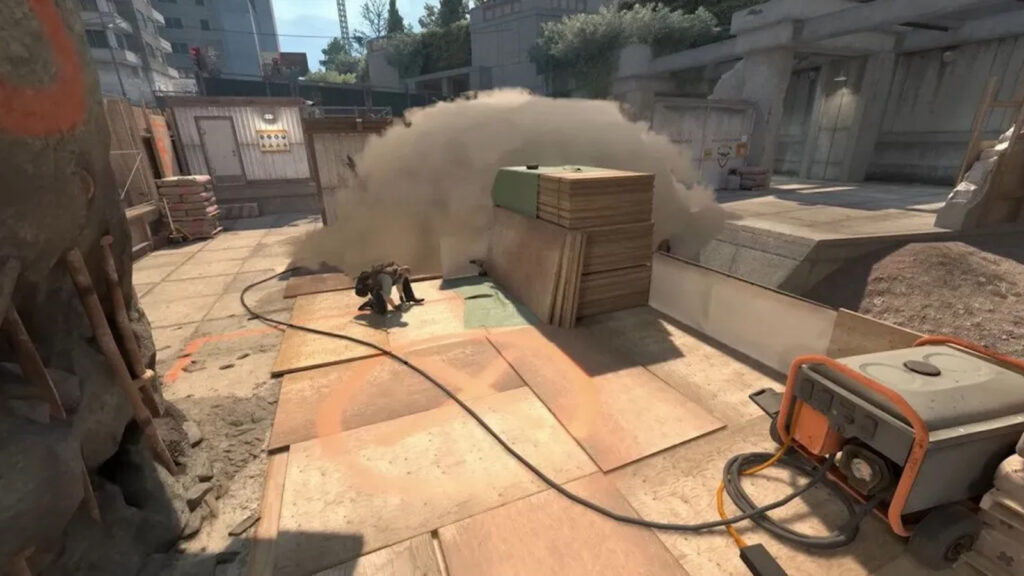Biej Insights
Exploring the latest trends and news around the globe.
Tactical Mind Games: Elevate Your CS2 Competitive Edge
Unleash your potential with Tactical Mind Games! Master strategies to elevate your CS2 gameplay and dominate the competition.
Mastering Map Control: Tactical Strategies for Competitive CS2
In Competitive CS2, mastering map control is crucial for achieving victory. Each map presents unique challenges and opportunities that can be leveraged through effective tactics. One of the most effective strategies is to establish early presence in key areas, such as bomb sites and choke points. Utilize your team’s utility effectively, throwing smokes and flashes to create openings and disrupt enemy movements. Prompt communication among teammates is vital; let them know when to push or when to hold back, ensuring you maintain control of critical zones.
Another tactical strategy for map control involves continually adapting your positioning based on the game’s progress and the enemy's actions. Use of sound cues can alert you to enemy movements, providing opportunities for flanking or ambushing. Moreover, consider using lurkers to keep opponents guessing, forcing them to split their attention and resources. In high-stakes matches, it's essential to remain unpredictable and versatile. By mastering these tactics, you’ll enhance your team’s effectiveness and improve your chances of dominating your opponents in CS2.

Counter-Strike is a popular tactical first-person shooter that emphasizes teamwork and strategy. Players can choose various weapons and equipment to gain an advantage in matches. One of the unique weapons available is the ursus knife, known for its distinctive design and effectiveness in close combat.
Psychological Warfare: Understanding and Outmaneuvering Your Opponents
Psychological warfare is a strategic tool often employed in conflict situations, aiming to influence the emotions, motives, perceptions, and reasoning of opponents. By understanding the psychological principles at play, individuals and organizations can gain a significant edge in negotiations, competitions, and various forms of conflict. The essence of psychological warfare lies in manipulating the mental state of the opponent; fear, uncertainty, and doubt are the primary tactics used to destabilize and demoralize. Successful practitioners recognize that every action they take can contribute to a larger psychological narrative, allowing them to outmaneuver their adversaries by creating an environment of confusion and vulnerability.
To effectively implement psychological warfare, one must first gather intelligence about the opponent's weaknesses and vulnerabilities. This can be achieved through observation, analysis, and sometimes, even subterfuge. Here are a few key strategies for outmaneuvering your opponents:
- Disinformation: Spread false information to create doubt and uncertainty.
- Fear Induction: Amplify the perceived risks or consequences associated with your opponent's decisions.
- Appeal to Emotion: Use emotional triggers to sway public perception or rally support.
By implementing these tactics thoughtfully, you can strengthen your position while undermining the resolve of your opponents, steering the conflict in your favor.
Are You Making These Common Mistakes in CS2 Competitive Play?
Competitive play in CS2 can be thrilling, but many players fall into common traps that hinder their performance. One major mistake is neglecting the importance of team communication. Without clear and concise callouts, your team may struggle with coordination, leading to unnecessary losses. Additionally, failing to adapt your gameplay to the strengths and weaknesses of your team can severely impact your overall effectiveness. Remember, synergy is key!
Another frequent issue players encounter is poor map knowledge. Understanding the layout, common positions, and choke points of each map is essential for gaining a strategic advantage. Moreover, players often overlook the necessity of practicing their aim and reflexes, leading to missed opportunities in crucial situations. Investing time in warming up before matches can greatly improve your performance, setting you up for victory in competitive games.